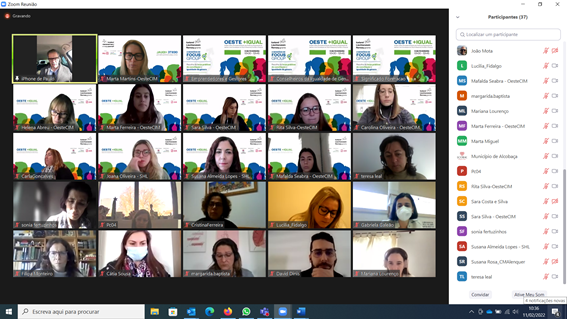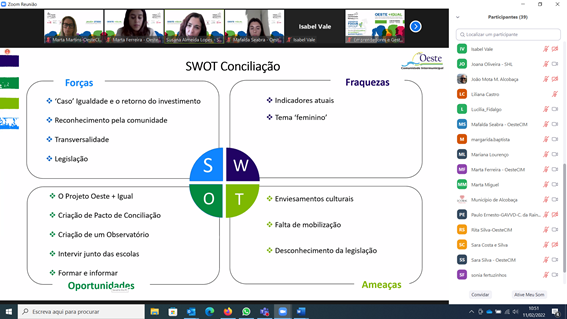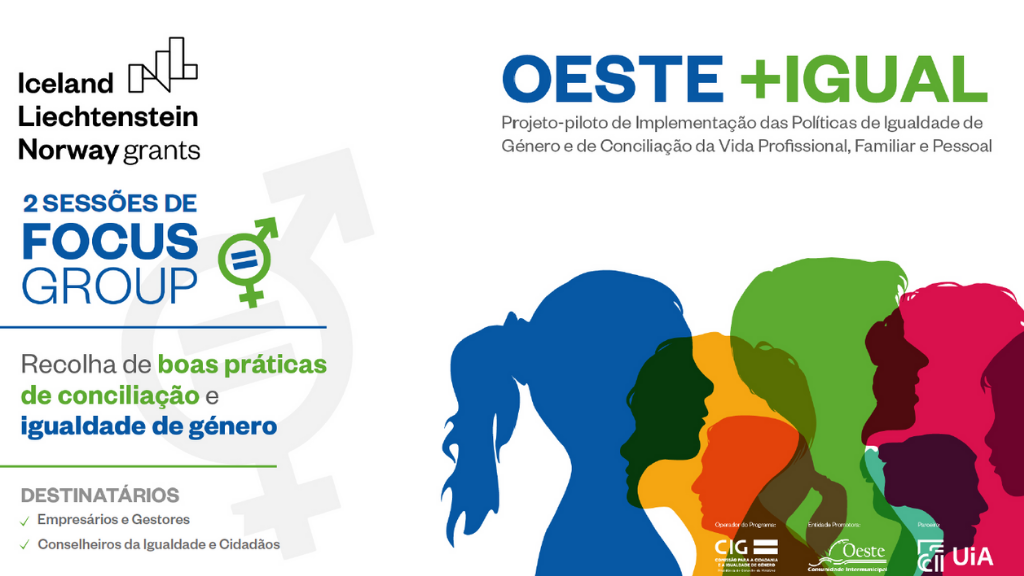On February 11, 2022, OesteCIM promoted 2 Focus Group Sessions within the scope of the Oeste +Igual Project, financed by EEA Grants, with the aim of compiling best practices in conciliation and gender equality at the level of the West Region in a digital manual.
The session was opened by the Executive Secretary of OesteCIM, Paulo Simões, who referred to the Porto Social Summit to highlight the growing importance of equality between men and women, equal opportunities and the balance between professional and private life, for which there will need to be a shared responsibility of national, regional and local authorities, the social partners and civil society.
The Executive Secretary of OesteCIM also explained the importance of a just transition so that women and men have the same opportunities and that inequalities are not yet exacerbated by changes, it being necessary that companies, public policies and society in general ensure the equal participation and opportunities in the labor market and establish rules on work-life balance.
Then, Susana Almeida Lopes, Coordinator of the Forum Igualdade at SHL Portugal, presented the results of the Reconciliation Diagnosis in the West Region in 2021. The Diagnosis revealed that most companies in the West do not have defined equality policies and that in the Municipalities there will also be room to improve practices. Furthermore, according to the results of the Diagnosis, the citizens of the West revealed that there is a greater ease in the career for men. In schools, however, there is a lack of information about the means that teachers can use to promote equality and non-discrimination in the school context.
After the presentation made by Susana Almeida Lopes, entrepreneurs, managers, equality counselors and citizens were divided into their respective rooms to start the Focus Group sessions.
As a conclusion of the Focus Group session with entrepreneurs and managers from the West, there was a weak adhesion of entrepreneurs to the invitation to participate in the Focus Group. The participants who responded to the invitation expressed the desire to have more concrete approaches and practical implementation, and could even collaborate in the elaboration of the Intervention Plan.
Regarding the conclusions of the Focus Group with the Councilors for Equality and Citizens, there is a need for greater knowledge of the reality in which the Municipalities intervene. In addition, there are few technical and human resources in the Municipalities, which ends up having a significant impact on the work that can be done. Another point that was mentioned concerns the need to articulate the work of the Municipalities through OesteCIM to allow the smaller Municipalities to have greater support. It will also be necessary to have a greater commitment through intervention and sharing with the services, Mayors, Councilors, Chiefs and Municipalities and an autonomy of the equality theme in the sense that it is not confined to the area of social action and involves other relevant stakeholders. in the process, making this a cross-cutting problem.


